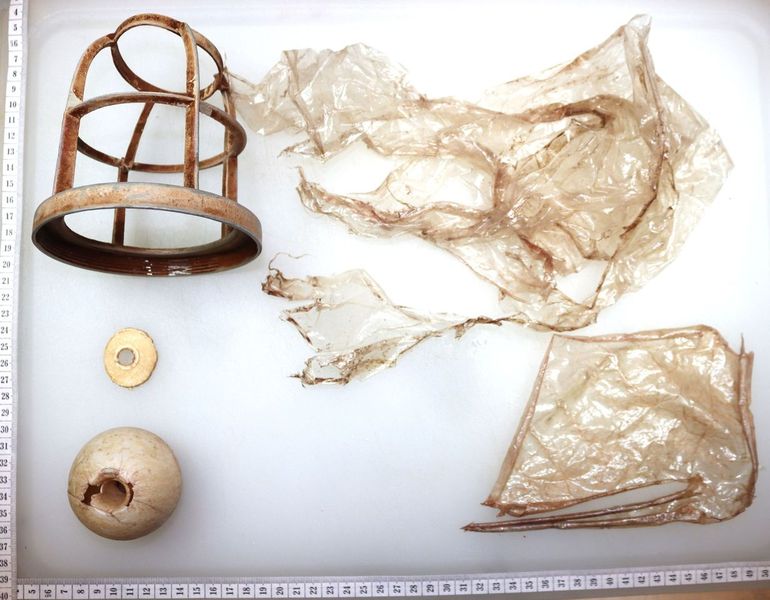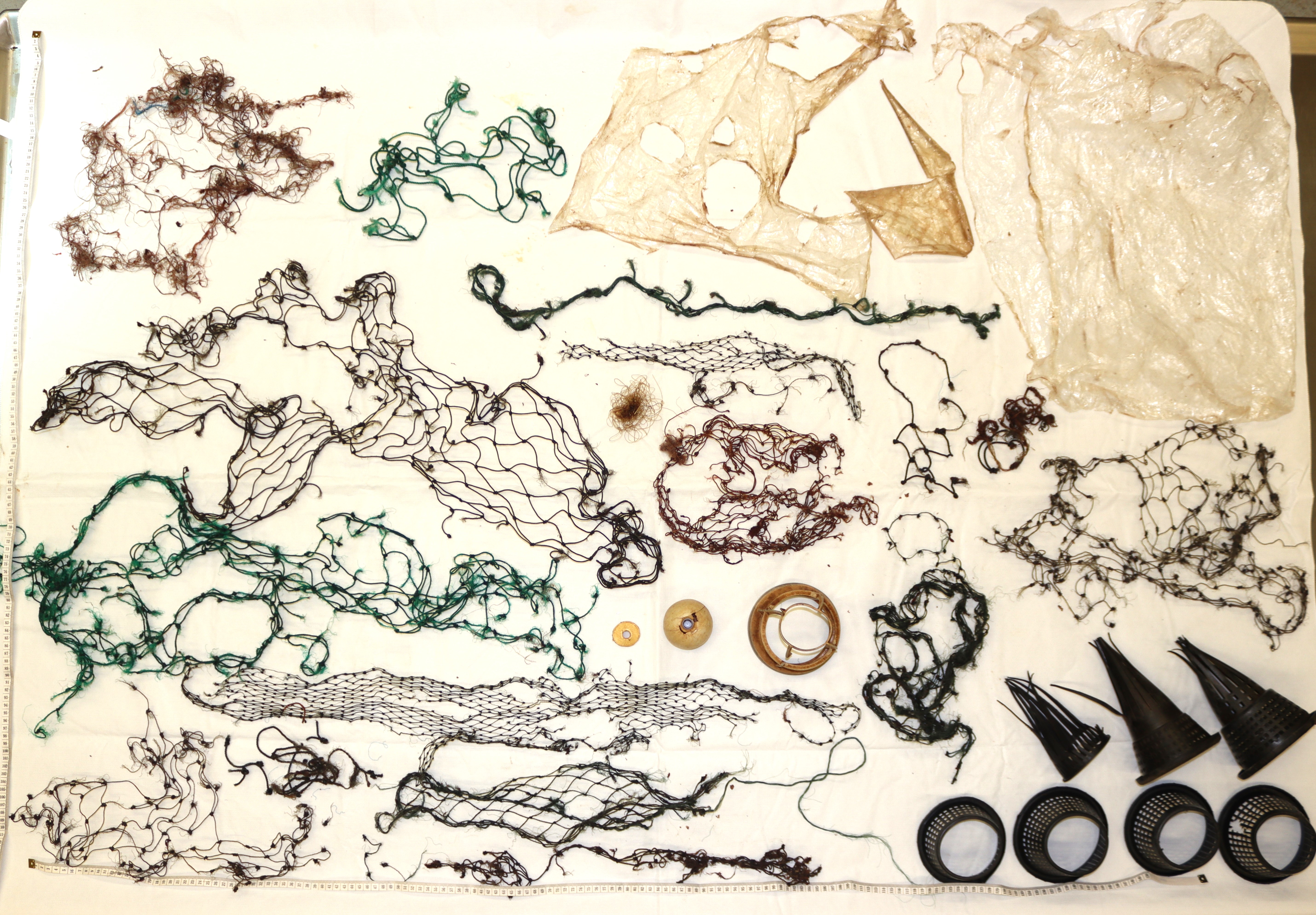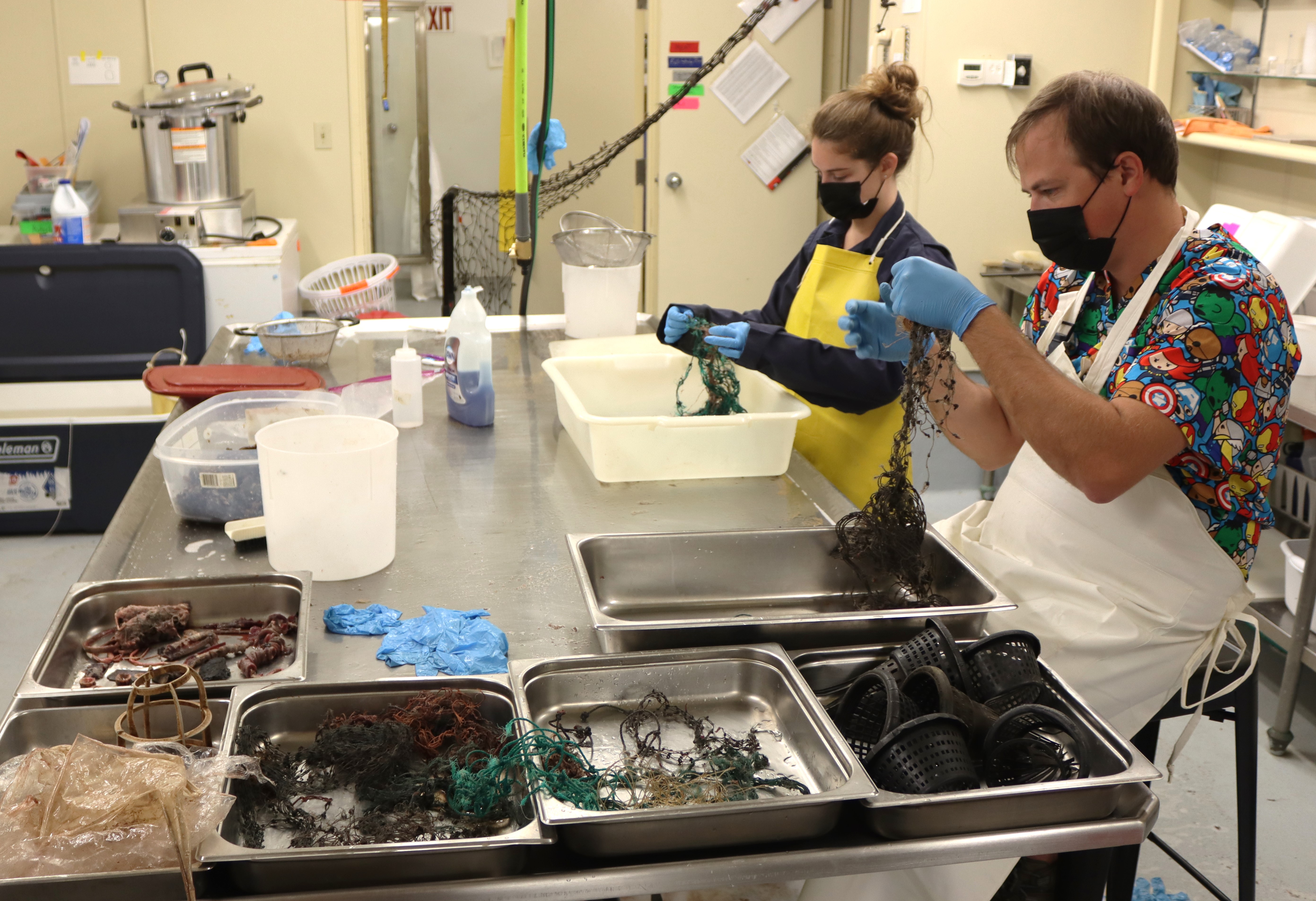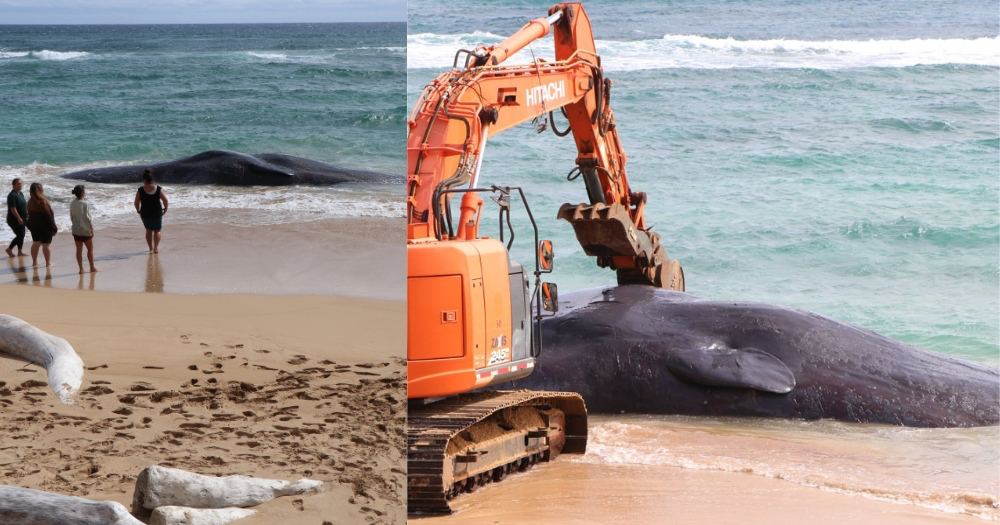Follow us on Telegram for the latest updates: https://t.me/mothershipsg
Plastic pollution and its nasty consequences have been demonstrated yet again, with the death of a whale in Hawaii.
The carcass of a sperm whale was washed up ashore on a reef off of Kaua'i, Hawaii's fourth-largest island, on Jan. 27.
The 17-metre-long animal that weighed 60,000kg was brought ashore during high tides.
The incident spotlighted the pervasive threat of marine pollution faced by marine wildlife.
This is not the first time marine trash was reported to have contributed to the death of a whale.
Large amount of marine trash found in whale's stomach
According to CBS News, researchers from the University of Hawaii at Mānoa Health and Stranding Lab spent 15 hours examining the carcass to determine the cause of death.
They later concluded that the whale died likely after it had ingested massive amounts of fishing traps, nets, plastic bags and other marine litter.
 Image via Daniel Dennison/ Hawaii DNLR
Image via Daniel Dennison/ Hawaii DNLR
 Image via Daniel Dennison/ DNLR
Image via Daniel Dennison/ DNLR
 Image via Daniel Dennison/ Hawaii DNLR
Image via Daniel Dennison/ Hawaii DNLR
In a news release from the Hawaii Department of Land and Natural Resources (DNLR), Kristi West, the Health and Stranding Lab Director, said:
"A major finding was the number of manufactured items in the whale’s stomach.
In addition to squid beaks, fish skeletons and other prey remains, we found at least six hagfish traps and we also found significant amounts of at least seven types of fishing net, at least two types of plastic bags, a light protector, fishing line and a float from a net."
She added that as the whale had a very large stomach, they were unable to fully examine it, and speculated that there were more man-made items within that her team was unable to recover.
West explained that they found a "substantial enough volume of foreign objects to cause a blockage" in the small opening of the intestinal tract into the stomach.
West added that the objects found in the whale's stomach "may have contributed to its death".
Even though the researchers found no abnormalities in the whale's other organs, they took a few samples to run through disease screening and other tests.
She highlighted the significance of this discovery:
"This is the first sperm whale in Hawaiian waters where we have seen this kind of ingestion of discarded fishing gear and nets."
“We are only able to examine a small number of our dolphins and whales that die in our waters, and we think that each individual we are able to examine represents as many of 20 other animals, who are likely to ultimately die from these types of impacts. It’s heartbreaking to see this kind of destruction in an individual animal,” West added.
Need for more action against marine pollution
Edward “Luna” Kekoa, the Recreational Fisheries Program Manager with the DLNR Division of Aquatic Resources (DAR), issued a call to action for more to be done to protect marine life.
“These man-made items persist in the ocean for a very long time, and we hope we can learn from this.
Every few days we hear about another whale, or dolphin, turtle, or monk seal entangled in fishing gear or lines.
At an absolute minimum lets prevent any more gear, plastic bags, and other items from getting into the system.”
The International Union for Conservation of Nature (IUCN) stated in November 2021 that over 300 million tonnes of plastic are produced every year, of which at least 14 million tonnes end up in the ocean.
80 per cent of all marine litter is plastic waste.
How animals are affected by plastic waste
Sperm whales are classified as an endangered species and found in deep oceans globally.
A report by the National Oceanic and Atmospheric Administration (NOAA) in 2021 estimated there were approximately 4,500 sperm whales in the waters around the Hawaiian Islands.
Whales are severely affected by plastic waste, consuming millions of micro plastics a day according to scientific journal Nature Communications.
Besides ingesting the waste, they may also be caught in it, thus dying of starvation, exhaustion or suffocation, says WWF.
300,000 whales, porpoises and dolphins die this way annually.
According to AP News, a humpback whale in Hawaii was recently freed from being trapped in a life-threatening entanglement of rope and fishing gear.
The NOAA respondents freed it off the coast of Kona, near the Kona Airport on the Big Island, in the Hawaiian Islands Humpback Whale National Marine Sanctuary.
Similar events at home
In Singapore, several cases of wild animals harmed by plastic waste found in the wild were reported in the past.
All images via Daniel Dennison/ Hawaii DNLR.
If you like what you read, follow us on Facebook, Instagram, Twitter and Telegram to get the latest updates.
